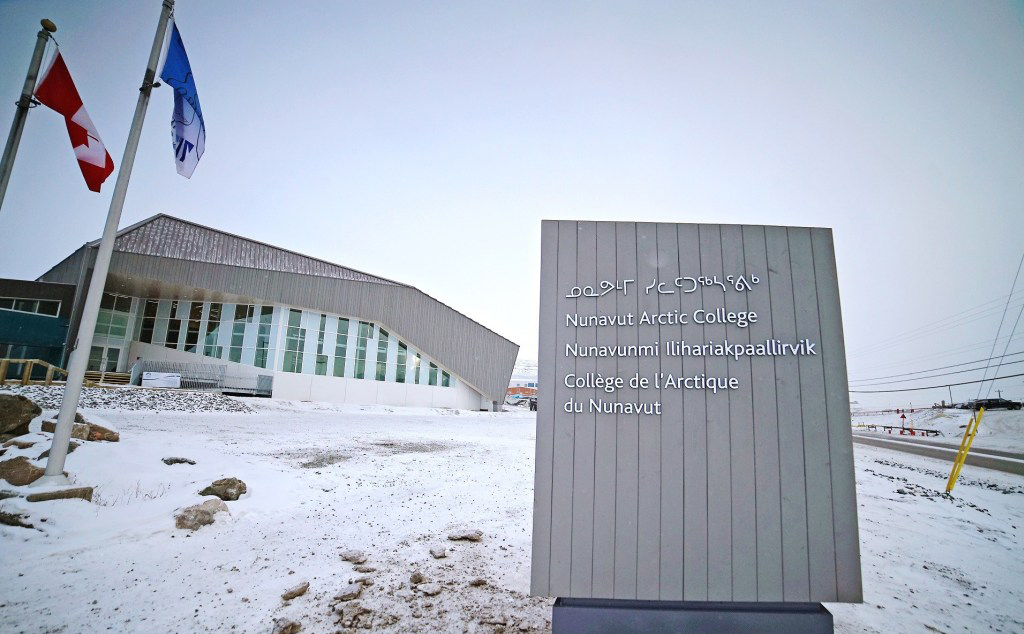Nunavut Arctic College seeks public’s help to shape its future
The college is now developing its 10-year strategic plan.

Nunavut Arctic College is looking for the public’s help to shape its future.
The college is working to develop its 10-year strategic plan — a document that will guide the college’s programming and highlight its key areas of focus for the next decade.
To help with this, the college recently launched a survey on its website that asks for the public’s input on what should be included in the plan.
In addition to the survey, the college is also conducting community consultation sessions over the next several months.
Sue Ball, the chair of the college’s board of governors, said the community sessions will help the board determine whether they are “going in the right direction” with the 10-year plan.
“We want to have consultations that reach as many people as possible. This plan will guide the college development for the next 10 years. It will also establish a focus so that we can align our resources with our priorities,” Ball said.
Ball said the college hopes to have the plan written by Sept. 2020, with consultations wrapping up in Feb. 2020.
The college has already identified five main goals for its 10-year plan: specialization, accessibility, accountability, responsiveness and stability.
Specialization means ensuring Inuit Qaujimajatuqangit and Inuit societal values provide the foundation for approaches to research, program development and administration. It also involves using Inuktut as the language of work and instruction, the survey states.
Ball said specialization also includes creating partnerships with circumpolar institutions, Inuit organizations and diverse post-secondary institutions.
The college recently signed a 10-year memorandum of understanding with Memorial University that will offer Nunavut students access to new joint degree programs.
“So what we’re trying to figure out is how do we become the international leader in Inuit culture, knowledge, science, language,” Ball said.
The second goal, accessibility, involves mapping out pathways for students, from high school advance credits to certificates, diplomas, degree status and more.
“We want our college to be the first choice for people heading into post-secondary studies. So this is our commitment to the students. What is it we need to do to make this their first choice? How are we going to be different than all the other post-secondary institutions?” Ball said.
The third goal, accountability, is focused on the quality of the college’s governance, administration and operations.
The fourth goal, responsiveness, involves supporting Nunavummiut through housing, day care and counselling. It also means creating learning opportunities to encourage community self-reliance.
“We have a responsibility to Nunavut, to the territory, to educate people. So this is our commitment to Nunavut. What do we need to do to prepare Nunavummiut not just for jobs, but to participate in our society, contribute to our society? It’s knowledge, it’s skills, but it’s also those other qualities,” Ball said.
And the final goal of the 10-year plan, stability, states that the college will become an independent post-secondary institution.
Members of the college’s Board of Directors met with community members in Igloolik on Nov. 18 and will hold another meeting in Hall Beach on Nov. 20.
Community consultations will also take place in Cambridge Bay and Arviat before the new year and will continue in other communities in 2020, Ball said.
“This is a chance to really shape the future, at least for the next 10 years, of the college. To me, it’s a period of really exceptional growth. We have the chance to become a different kind of organization, one that’s hopefully more responsive to the needs,” Ball said.
The survey on the college’s 10-year strategic plan can be found in the territory’s four official languages here and at all of Nunavut’s community learning centers.